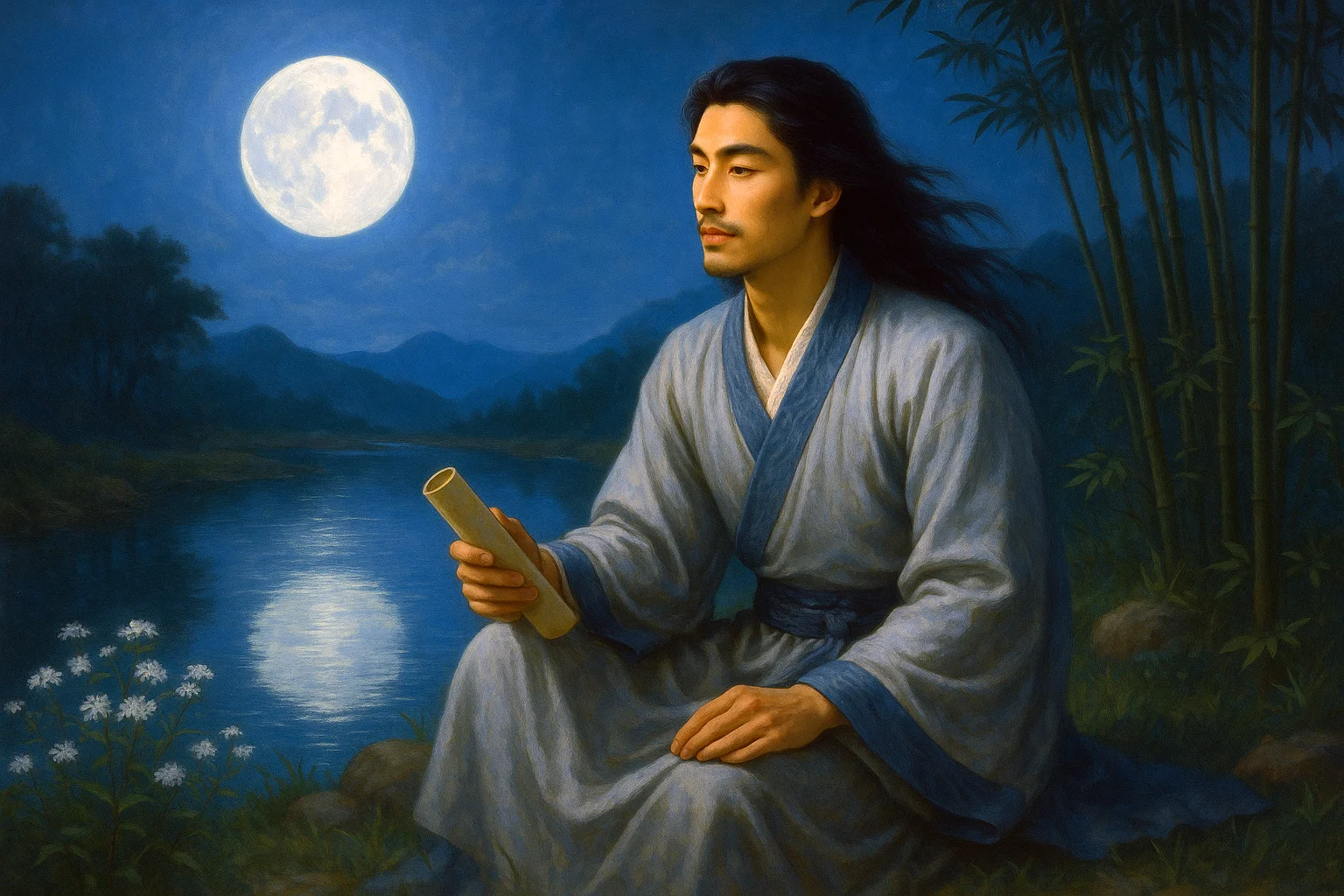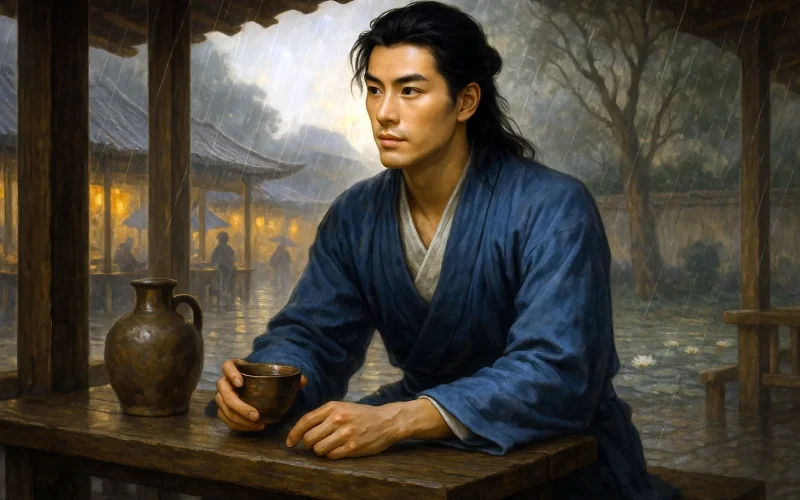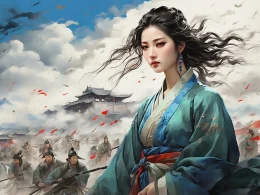A lone banner dissolves into the world's rim,
Flower-blind gardens mock spring's hymn.
Only tavern drunks still trade in coins,
Their folk songs graffiti the sunset's loins.
Original Poem
「寒食」
曾巩
一麾飘泊在天涯,寒食园林不见花。
唯有市亭酤酒客,俚歌声到日西斜。
Interpretation
Composed during Emperor Shenzong's reign when Zeng Gong was serving away from his homeland, this poem reflects on the Cold Food Festival (寒食节) - an important traditional occasion originally marked by fire prohibition, cold meals, and ancestral tomb-sweeping that later evolved into a spring outing celebration. Stranded in a foreign land, unable to reunite with family or participate in customary rituals, the poet conveys profound loneliness and displacement through this seasonal meditation.
First Couplet: "一麾飘泊在天涯,寒食园林不见花。"
Yī huī piāobó zài tiānyá, hánshí yuánlín bújiàn huā.
Wandering with official seal to heaven's very rim, / Cold Food garden shows no blossom, bare and grim.
The "official seal" (一麾) symbolizes both his bureaucratic identity and rootlessness. The expected spring blossoms' absence (不见花) in the festival garden becomes a powerful metaphor for emotional and cultural displacement.
Second Couplet: "唯有市亭酤酒客,俚歌声到日西斜。"
Wéiyǒu shì tíng gū jiǔ kè, lǐ gē shēng dào rì xī xié.
Only tavern drinkers in marketplace stalls remain, / Their rustic songs lingering till sunset's wane.
The vulgar tavern scene (市亭酤酒客) with its "rustic songs" (俚歌) emphasizes the poet's alienation from even the commoners' simple festivities, deepening the portrait of intellectual and spiritual isolation during what should be a communal celebration.
Holistic Appreciation
These lines, written in a stark and concise style, depict the poet’s desolate mood as he drifts alone in a distant land during a festival. The poem takes Cold Food Festival (寒食节) as its emotional trigger, expressing the loneliness of being far from home, severed from familial warmth and festive customs. The first couplet portrays the emptiness of an official’s wandering life and the absence of spring’s vibrancy, while the second shifts to the boisterous folk revelry—a world from which the poet feels detached. The juxtaposition of the refined (elegant sorrow) and the mundane (popular merriment) heightens the contrast, emphasizing the poet’s aloof yet profoundly solitary state.
Though only four lines long, the poem unfolds in clear layers: the opening sets the scene, the second line sketches the landscape, the third turns to reality, and the closing line fades into twilight, where human voices grow distant. The emotion deepens gradually, carrying a sorrow that lingers long after reading.
Artistic Merits
- Festival and Emotion Deeply Intertwined
Instead of directly describing Cold Food Festival customs, the poet uses "gardens stripped of blossoms" (园林不见花) and "the crude songs of taverns" (市亭俚歌声) to reflect his inner void and absence. Scenery becomes emotion; festival atmosphere merges with life’s bitter taste. - Economical Language, Profound Meaning
Each line is tightly crafted, with no wasted words, yet the meaning unfolds step by step, leaving room for contemplation. The first couplet paints a scene, the second reveals the heart—subtle yet powerful in its loneliness. - Contrast Sharpens Emotional Impact
The clamor of "drinkers buying wine in market pavilions" (市亭酤酒客) clashes with the poet’s "drifting to the ends of the earth" (飘泊天涯), intensifying his sense of alienation. Amid the crowd, he stands apart—a soul adrift.
Insights
This poem makes us feel the vast emptiness left by absent connections during festivals, stirring a deep longing for reunion and belonging. The poet conveys intense solitude and homesickness through restraint and simplicity, reminding us that behind every celebration, there are those who wander alone, bearing the weight of time’s silence. This emotion transcends eras, remaining as poignant today as ever.
About the Poet

Zeng Gong (曾巩, 1019 - 1083), a native of Nanfeng in Jiangxi province, stands among the illustrious "Eight Great Masters of Tang-Song Prose." His writings distinguished themselves through an elegant classical balance, celebrated for their rigorous argumentation and refined literary craftsmanship. While his poetry embraced an artless subtlety, his prose achieved what critics hailed as "the very essence of purity" - an achievement that, though perhaps less dazzling than his contemporaries like Su Shi or Wang Anshi, earned him posthumous reverence as the founding master of the "Nanfeng Literary School."












